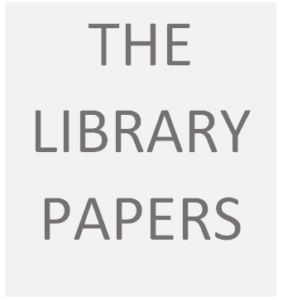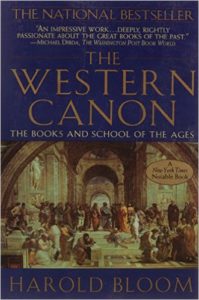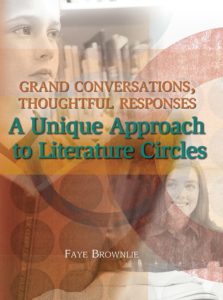3.3 Canons
Journal Entry 3
Religion
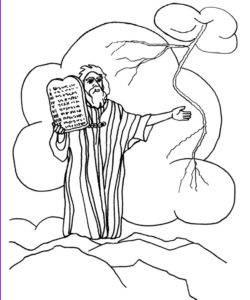 The term ‘canon’ started out in classical Greece and Rome to mean a set of laws governing religious matters. It was imported by the Roman Catholic Church to describe their rules. Over time, the meaning was stretched to cover any collection of sacred books deemed to be authoritative, and eventually in the late 19th and early 20th centuries, it was applied in England to works of literature that were ‘considered to be permanently established as being of the highest quality’ (Eagleton, 2008). Shakespeare’s writing is ‘canonical,’ as are many other works that are considered to be the foundations of the western intellectual tradition in general, and English literature in particular.
The term ‘canon’ started out in classical Greece and Rome to mean a set of laws governing religious matters. It was imported by the Roman Catholic Church to describe their rules. Over time, the meaning was stretched to cover any collection of sacred books deemed to be authoritative, and eventually in the late 19th and early 20th centuries, it was applied in England to works of literature that were ‘considered to be permanently established as being of the highest quality’ (Eagleton, 2008). Shakespeare’s writing is ‘canonical,’ as are many other works that are considered to be the foundations of the western intellectual tradition in general, and English literature in particular.
Social Change
The religious origins of the term are interesting: literary critic Terry Eagleton says unequivocally that the “single explanation for the growth of English studies in the later 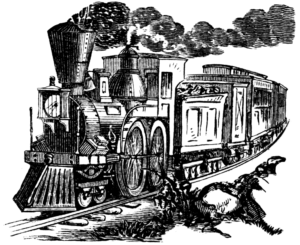 nineteenth century” was “the failure of religion,” (22) because the industrial revolution spurred both scientific discovery and social change. As a result, religion began to lose its hold on the culture. Religion is an age-old force for social cohesion; it was necessary to find a replacement: literature written in English was there to “save it,” as an early Professor of English Literature at Oxford said (Eagleton, 23).
nineteenth century” was “the failure of religion,” (22) because the industrial revolution spurred both scientific discovery and social change. As a result, religion began to lose its hold on the culture. Religion is an age-old force for social cohesion; it was necessary to find a replacement: literature written in English was there to “save it,” as an early Professor of English Literature at Oxford said (Eagleton, 23).
Politics
So you could say that the Western Canon is (loosely) connected to western cannons as well, given that both were used as means of social control. And of course, the literary canon was ideological from the 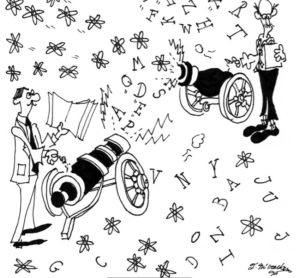 outset: it’s goals were to give the rising administrative class in Britain instruction in ideas cherished by the bourgeoisie and usually taught to them in venerable universities (27).
outset: it’s goals were to give the rising administrative class in Britain instruction in ideas cherished by the bourgeoisie and usually taught to them in venerable universities (27).
The working masses weren’t expected or wanted in those universities; they weren’t expected or wanted to read the classics in the original Greek or Latin; they weren’t even expected or wanted to write–only to read–and what they read was literature written in English, or English translations of the classical works. In fact ‘English’ as an academic subject was first taught at the Mechanics’ Institutes for the working class, not at liberal universities.
The Liberal Humanist Meets Globalization
But it needs to be said that the ideas embodied in the canon were not evil in themselves—pluralistic thought and the recognition that there can be more than one point of view on a topic; consideration of moral and ethical behaviour and the good life; contemplation (aka development of the self); and pride in national language and literature. These are values we still rely on literature to instill. If anything, we have come to value them even more highly (Douthat, 2007). The problem was with the early rigid limits placed on what was included and who decided.

Most people would say that this issue was resolved during the so-called ‘canon wars’ of the 1990’s, in favour of more-liberal inclusiveness, at least partly because of globalization and multi-culturalism. And this is exactly how it’s supposed to work in liberal democracies: whether you do it cheerfully or grudgingly, move over and make room for newcomers.
There’s Always Another Problem
Given that stories promote social cohesion, you could say that a canon constitutes a meta-narrative of stories about how we see ourselves. We still do need this, but now the problem is between those who defend the idea of a distinct body of knowledge and texts that students should master, and those who focus more on modes of inquiry and interpretation (Donadio, 2007). But even this question is being resolved in favour of modes of inquiry and interpretation, at least for now. Canon ‘reformation’ is problematic not just because of multi-culturalism but also because of identity politics and the increasing emphasis on the individual and individualised education, not to mention the proliferation of media formats for representation. It is difficult to find unity in this diversity at the moment (Pankaj & Mendelsohn, 2013).
There’s Always Another Solution

It is not so difficult to find canonical texts for primary and intermediate students. The problem arises for young adults and beyond: students are encouraged to develop as individuals– as they get older they are increasingly more diverse in their reading tastes; teachers are encouraged and wanted to develop individualized instruction programs.
Given the heterogeneous make-up of the average secondary class, it is tricky to find texts that can be enjoyed by all. There are still canonical texts, but the selection is conservative by current trends in literature, and because a canon consists of books that have stood the test of time, new material is incorporated at a glacial pace. Exactly the behaviour you would expect from a canon in a turbulent time.
One solution to whole-class novel study is to approach issues thematically; another is to offer a diverse selection of novels and leave students to choose based on their interests and reading levels. It also bears remembering that whatever new texts emerge as ‘canonical,’ it can’t be assumed that they will be primarily print documents, or even print-based at all, something which I have sketched in roughly in the thematically sorted examples below.
The Canon and the Humanist Tradition
The Western canon is the body of books, music, and art that scholars generally accept as the most important and influential in shaping Western culture. It includes works of fiction, non-fiction, poetry, drama, music, art, sculpture, and architecture generally perceived as being of major artistic merit and representing the high culture of Europe and North America. wikipedia.org/Western canon
Globalization and Multi-Culturalism
The emerging canon calls for stories that help students to see themselves as members of a global community. Following is a small sample of international stories, both fiction and non-fiction that could be used for this purpose:
Fantasy
Another answer is stories set outside of our time and place, but which deal with current social issues:
Stories About Stories
In this multi-media age there is a role for stories that talk about how stories are told. Again what follows is just a sample:
Works Cited (Click Here)
Bloom, Harold. The Western Canon: the Books and School of the Ages. New York, Riverhead Books, 1994.
Bradbury, Ray. Fahrenheit 451. New York, Simon & Schuster, 2013.
Brownlie, Faye. Grand Conversations, Thoughtful Responses: a Unique Approach to Literature Circles. Winnipeg, Portage & Main Press, 2005.
Card, Orson Scott. Ender’s Game. New York, Tor, 1992.
Chandler, James. “Battle of THE Books.” The University of Chicago Magazine: February 2001, Features, magazine.uchicago.edu/0102/features/. Accessed 25 Feb. 2017.
Collins, Suzanne. The Hunger Games. New York, Scholastic Inc., 2012.
Doerr, Anthony. All the Light We Cannot See: a Novel. New York, Scribner, 2014.
Donadio, Rachel. “Revisiting the Canon Wars.” The New York Times, The New York Times, 15 Sept. 2007, www.nytimes.com/2007/09/16/books/review/Donadio-t.html. Accessed 25 Feb. 2017.
Douthat, Ross. “The Canon Wars.” The Atlantic, Atlantic Media Company, 17 Sept. 2007, www.theatlantic.com/personal/archive/2007/09/the-canon-wars/54798/. Accessed 25 Feb. 2017.
Eagleton, Terry. Literary Theory: an Introduction. Minneapolis, University of Minnesota Press, 2008.
Eggers, Dave. What Is the What: the Autobiography of Valentino Achak Deng: a Novel. London, Penguin Books, 2008.
Funke, Cornelia. Inkheart. New York, NY, Scholastic, 2008.
Marquez, Gabriel Garcia. One Hundred Years of Solitude. New York, Harper, 2006.
Mendelsohn, Pankaj Mishra and Daniel. “How Would a Book Like Harold Bloom’s ‘Western Canon’ Be Received Today?” The New York Times, The New York Times, 18 Mar. 2014, www.nytimes.com/2014/03/23/books/review/how-would-a-book-like-harold-blooms-western-canon-be-received-today.html?_r=0. Accessed 25 Feb. 2017.
Mitchell, David. Cloud Atlas: a Novel. New York, Random House, 2010.
Orwell, George. 1984: a Novel. New York, Signet Classics, 2007.
Reed, Matt. “Remember the Canon Wars? | Inside Higher Ed.” Confessions of a Community College Dean, 11 Apr. 2013, www.insidehighered.com/blogs/confessions-community-college-dean/remember-canon-wars. Accessed 25 Feb. 2017.
Yousafzai, Malala. I Am Malala: The Story of the Girl Who Stood Up for Education and Was Shot by the Taliban. Little Brown & Co, 2013.
